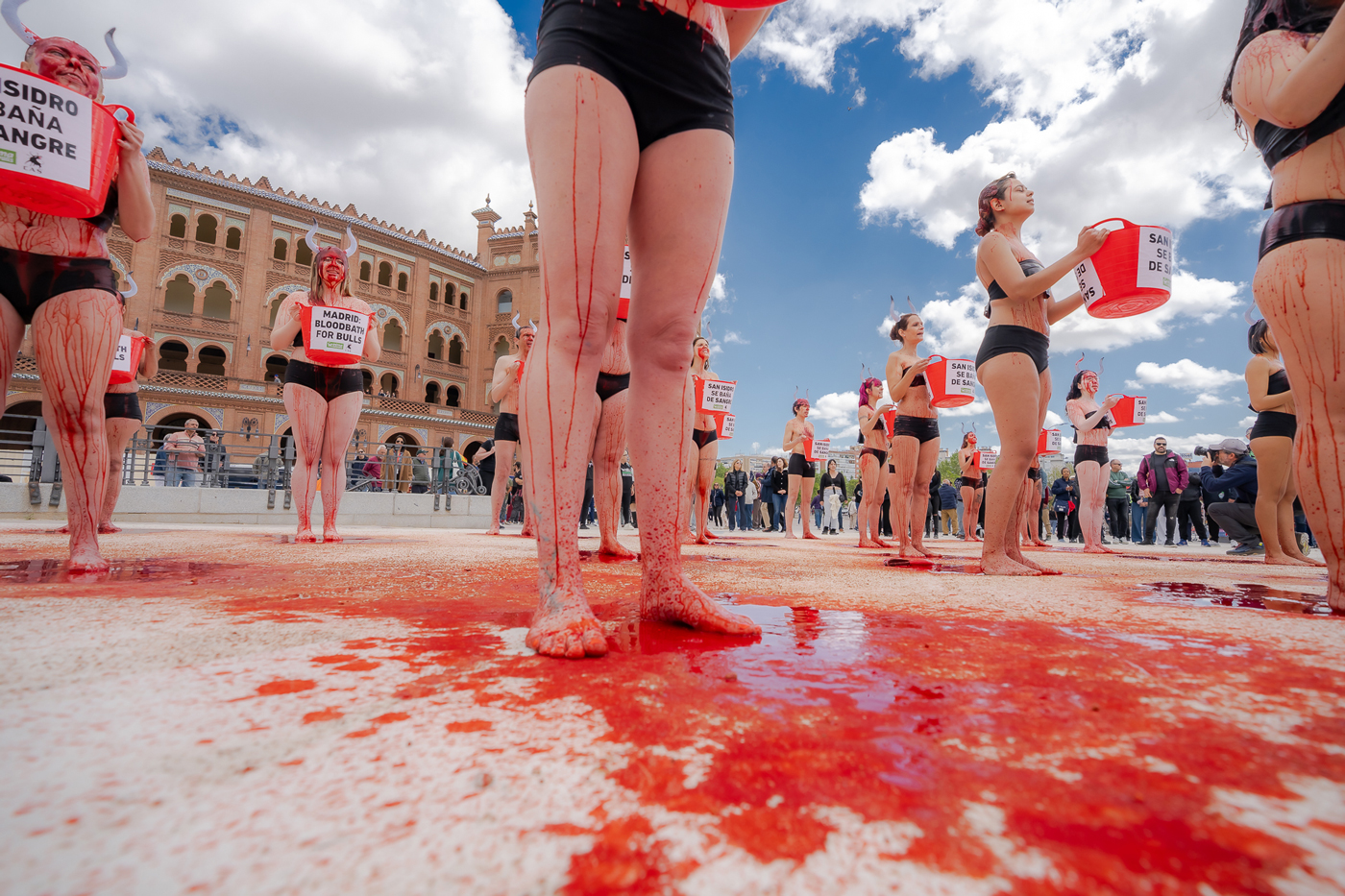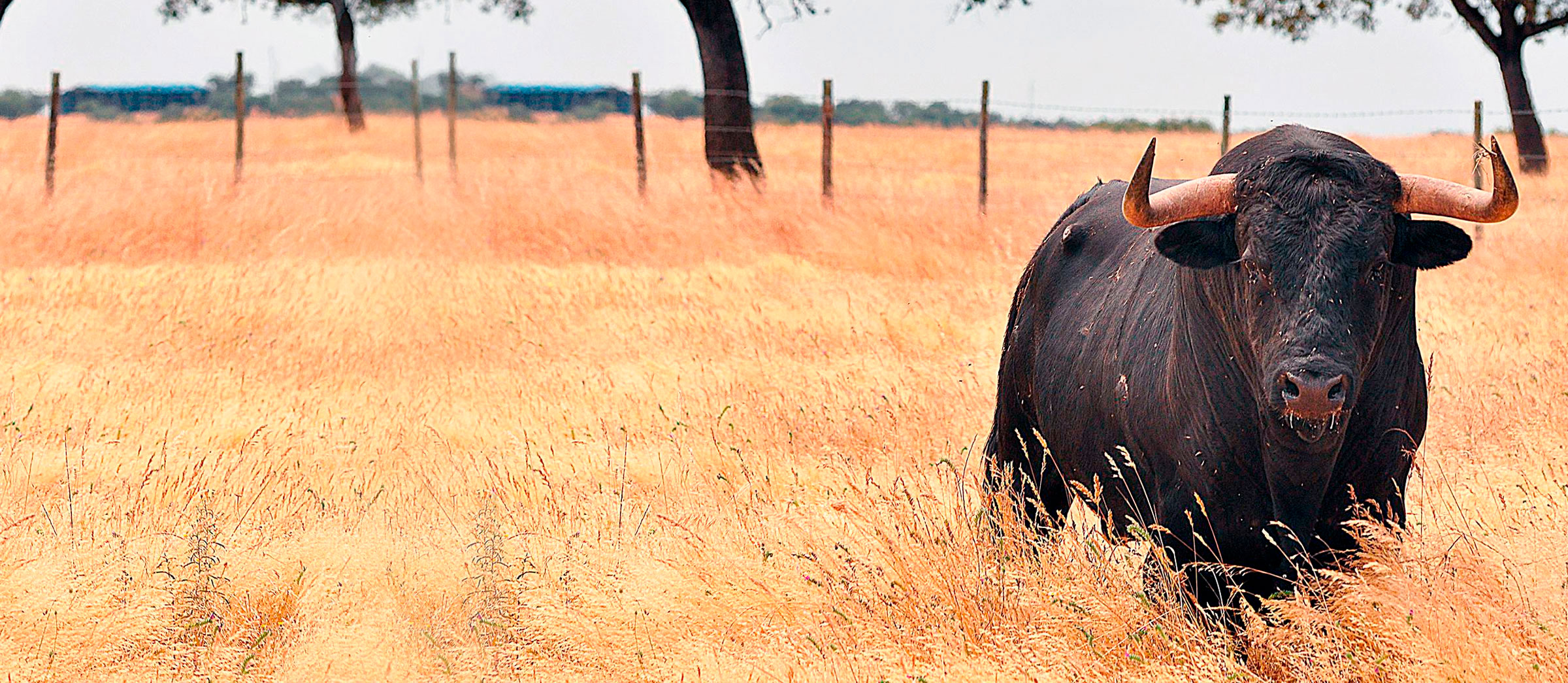Under the Madrid sun on May 11, 2025, around fifty activists from AnimaNaturalis and CAS International gathered in front of the iconic Las Ventas Bullring to bathe themselves in the blood that will be spilled during the San Isidro festivities in the city. Jaime Posada, coordinator of AnimaNaturalis in Madrid, did not hesitate to point out the contradiction: "We denounce that taxes are used to support an industry that only represents 2% of the population. The #NoEsMiCultura Popular Legislative Initiative demonstrates that people demand transparency and the freedom to decide which heritage we defend." The initiative, backed by nearly 665,000 validated signatures, is a direct blow to the Cultural Heritage Law that protects bullfights, preventing municipalities and autonomous communities from rejecting them.
Aïda Gascón, director of AnimaNaturalis in Spain, reinforced the message: "We are not talking about prohibiting, but about democratizing culture. How can something be heritage when 78% of Spaniards reject it? Institutions must listen to a citizenry that cries out for ethics and progress." The data are clear: a Sigma Dos survey for El Mundo reveals that 48% of Spaniards support stripping bullfighting of its cultural status—rising to 65% among PSOE voters.
Public money, private interests
While the bullfighting sector bleeds, the government of Isabel Díaz Ayuso insists on turning it into a banner of its “culture war.” Over the last three years, the Community of Madrid (CAM) has allocated €2.2 million to the upkeep of Las Ventas, in addition to €3 million in aid to the fighting-bull industry during the pandemic. For 2025, the budgets include €1.7 million for the Fiesta del Toro and €3.1 million for Telemadrid, which will broadcast 45 bullfights, including the controversial San Isidro Fair.
"It’s an insult to citizens. While they cut back on culture, education, and healthcare, they squander funds on a violent spectacle that isn’t even profitable," says Gascón. The critique points to a double standard: Onetoro TV, the most important bullfighting platform, has accumulated losses of €12 million and has only 53,504 subscribers—far from the 200,000 projected. "When private companies flee, Ayuso turns Madrid into a lifeline for a dying industry," adds Posada.
CAM’s wager contrasts with social disinterest. According to the Ministry of Culture, only 8% of Spaniards attended a bullfighting event between 2018 and 2019. Furthermore, the Cultural Statistics Yearbook confirms that, between 2009 and 2019, the number of bullfights was cut in half (from 2,684 to 1,425). "This is not freedom; it’s imposition. They use everyone’s money to inflate a balloon that has no air left," states Gascón.
The end of an era
The decline of bullfighting is not an opinion but a reality backed by figures. A study by the BBVA Foundation (2025) reveals that 78% of Spaniards reject the use of animals in spectacles, while 72% of young people aged 18 to 24 consider it "a relic of the past." After a slight rebound in 2022—attributed to bull overpopulation and precarious working conditions in the sector—preliminary data for 2023 confirm that the decline is unstoppable.
"Bullfighting did not evolve," reflects Gascón. "While the world moves toward animal respect, they cling to violence as a spectacle." Madrid’s case exemplifies this tension: although Ayuso promises €40 million to renovate Las Ventas, collectives like AnimaNaturalis demand reinvesting those funds in educational or healthcare projects. The debate transcends economics. For many, it is an irreversible ethical change. "New generations do not tolerate cruelty. Today, a child who sees a bull suffering does not applaud but asks why they do it," says Posada.
The protest at Las Ventas is not an isolated episode but the reflection of a society redefining its identity. "Madrid deserves festivities that celebrate life, not death. True heritage is what unites us in compassion, not what divides us in blood," summarizes Gascón.
With the #NoEsMiCultura PLI in Congress and the majority support of citizens, the twilight of bullfighting seems inevitable. The question is not if it will fall, but when. And for AnimaNaturalis, the answer is clear: "It will be soon. Very soon."



